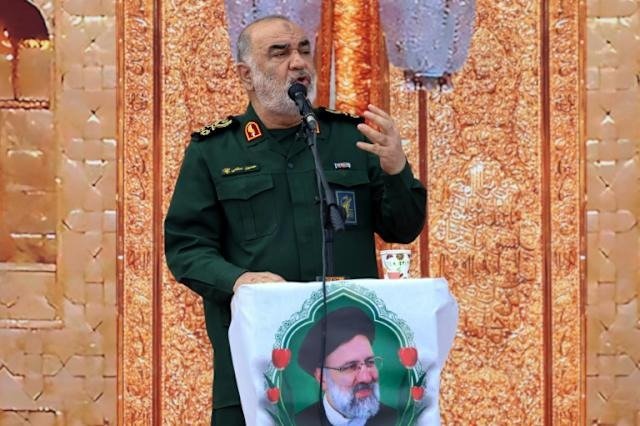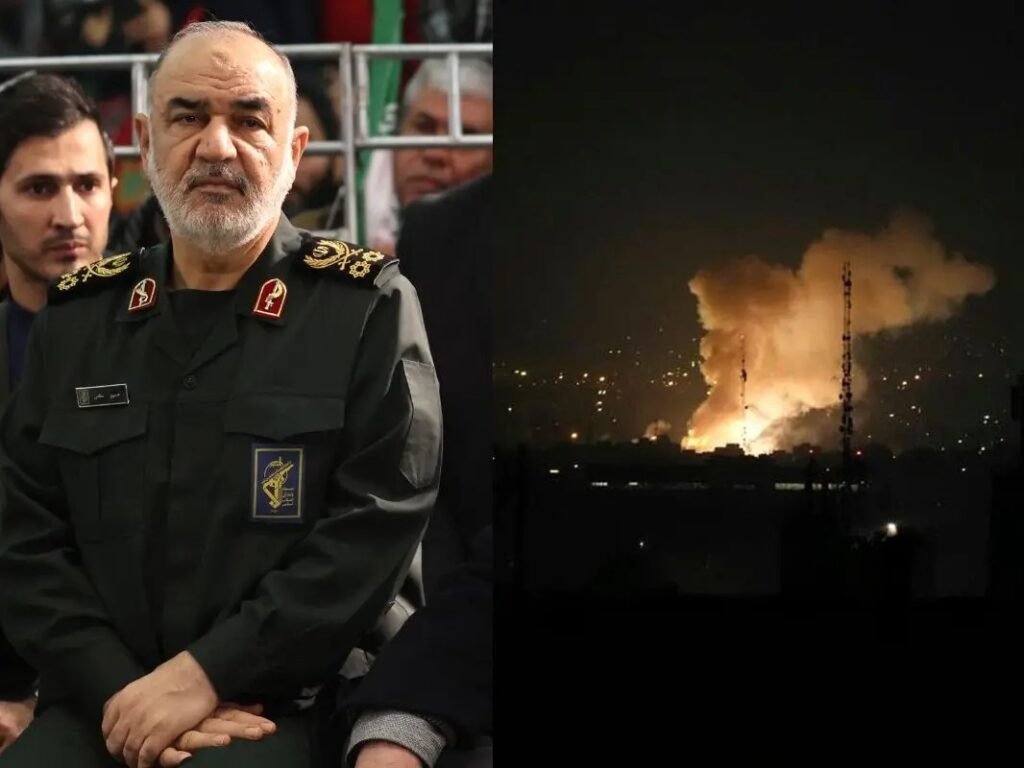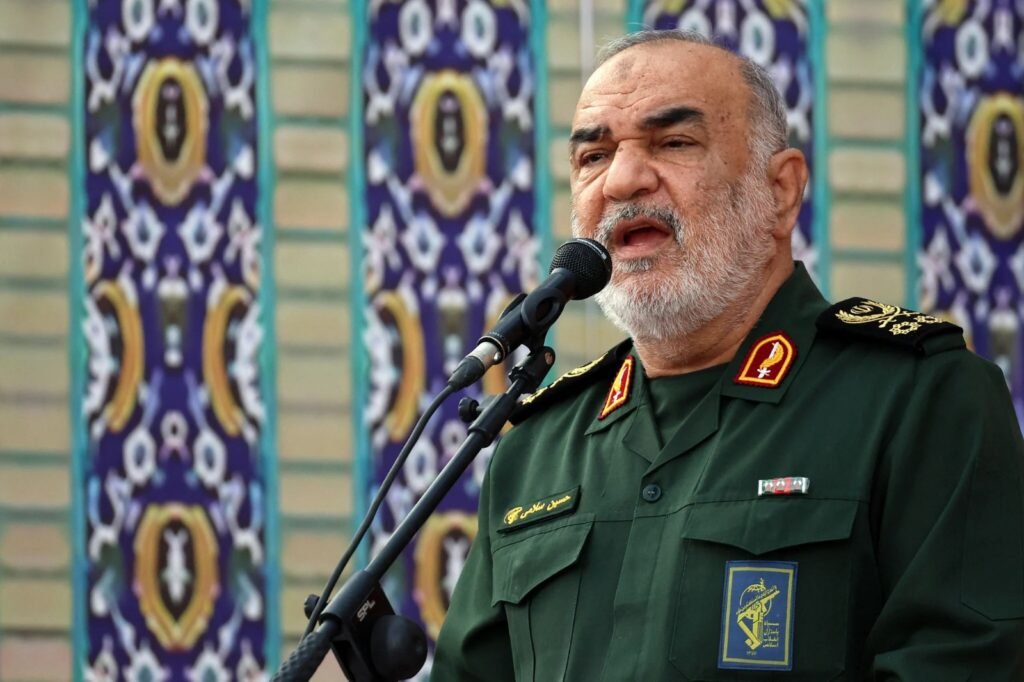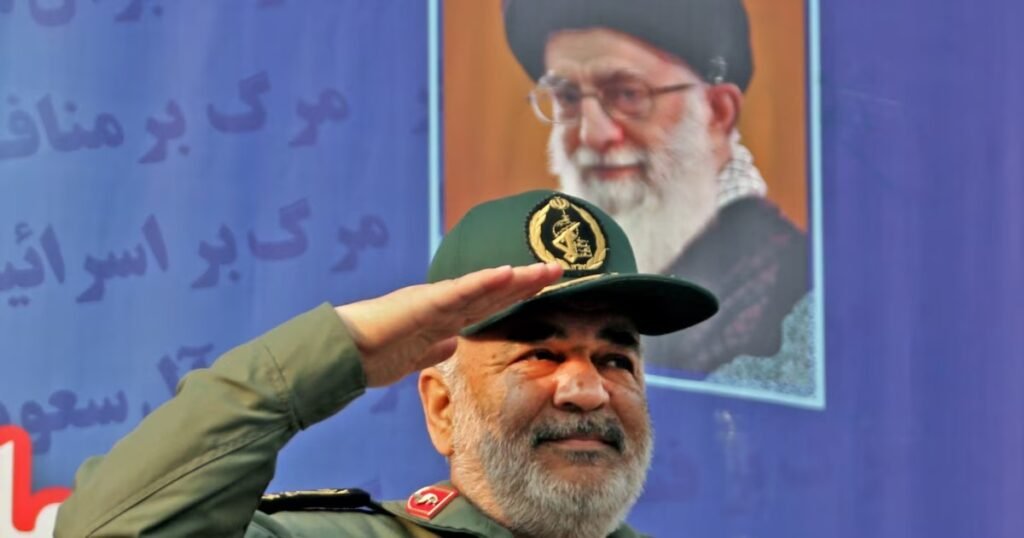General Hossein Salami, Iran’s veteran Commander-in-Chief of the Islamic Revolutionary Guard Corps (IRGC), was assassinated in a targeted Israeli airstrike on Friday—a shattering moment in Middle Eastern politics. His demise, reported by Iranian state media, was part of Israel’s extensive military campaign, “Operation Rising Lion,” aimed at Iran’s nuclear plants and top brass.
Who Was Hossein Salami?

Hossein Salami was born in 1960 in Isfahan, Iran. He emerged into national prominence during the Iran–Iraq War (1980–88), which made him a well-known battle-hardened tactician. In the following four decades, he transformed into one of Iran’s mightiest military leaders, delineating the nation’s regional power and asymmetric war doctrine.
As IRGC chief appointed by Supreme Leader Ayatollah Ali Khamenei in 2019, Salami commanded Iran’s missile capability, cyber warfare brigade, and military coordination with Hezbollah, Hamas, and the Houthis. Internally, he served as a defender of the Islamic Republic’s ideological integrity, frequently synchronizing military policy with hardline clerical leadership.
Internationally, Salami was feared and hated. While Iran regarded him as a protector of sovereignty and a deterrent against Western aggression, international critics singled him out for allegedly inciting proxy wars throughout the Middle East. Under his leadership, Iran was blamed for masterminding attacks on U.S. targets in Iraq, equipping anti-Israel groups, and stepping up nuclear enrichment in disregard of international norms.
His Death and Its Aftermath

Salami was murdered alongside General Mohammad Bagheri, Iran’s chief of staff, and leading nuclear scientists in Israeli airstrikes that targeted military and nuclear facilities in Tehran and Natanz. The bombing, which followed increased tension over Iran’s nuclear program, is Israel’s most brazen attack since the 2020 assassination of Qasem Soleimani.
His death is symbolic, not merely—he attacks the very core of Iran’s military doctrine and ideological axis. The IRGC responded by promising “severe revenge,” and Iran’s Supreme Leader called for three days of national mourning.
What Happens Next?
Salami’s demise leaves a leadership vacuum in the IRGC. Although no successor has been officially announced, there is high speculation that Brigadier General Ali Fadavi, Salami’s second-in-command and an experienced veteran of Iran’s sea battles, will be placed in charge in an interim capacity. Alternatively, Esmail Qaani, who is the present head of the Quds Force, with experience in running Iran’s extraterritorial activity, is also a possible candidate.

The Iranian regime would now most probably concentrate on preserving internal stability while taking a balanced response to prevent a full-scale war. Meanwhile, Israel is placed on high alert, with the fear of retaliatory drone and missile attacks throughout the region.
Legacy: A Double-Edged Sword
Hossein Salami departs behind a complex legacy. To most Iranians, particularly hardliners, he was a national hero—unwaveringly defiant, ideologically dedicated, and militarily powerful. Far too much of the world, he was a destabilizing influence, whose tactics brought the Middle East closer to protracted conflict. His death has altered the balance of power in the region—whether to escalation or a realignment of strategy is not clear. This much, however, is certain: the post-Salami age has started, and its effects will spread well beyond Iran.


